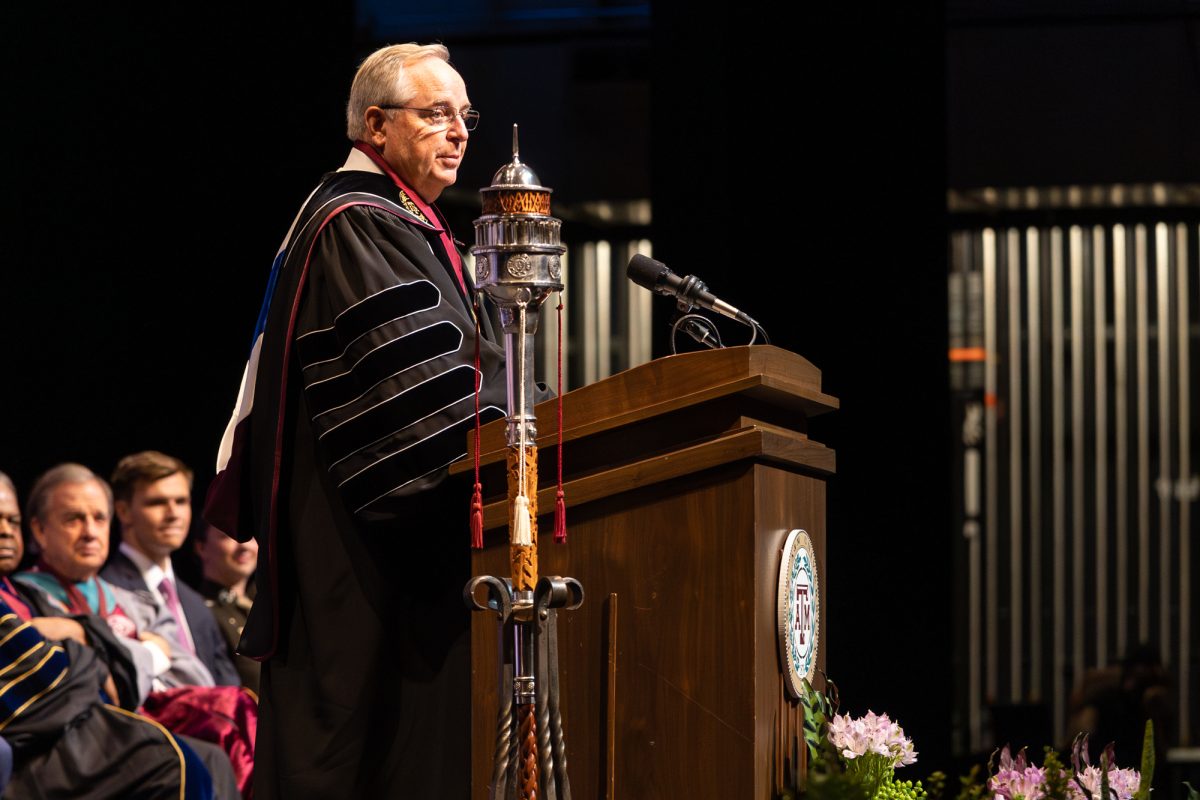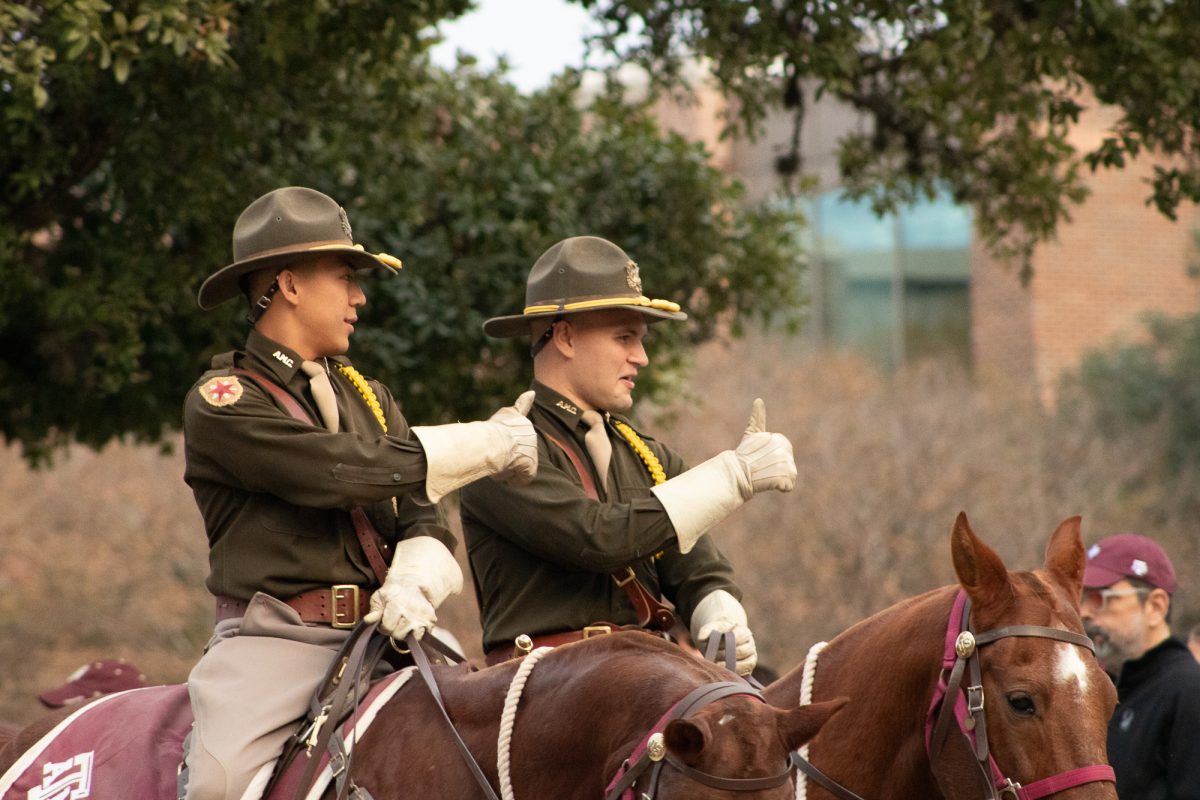Within the secular setting of academia, it may seem that the words printed in students textbooks are in direct opposition to those found in religious works. Yet many students at Texas A&M find these can simply be different versions of the same intricate story.
The Texas A&M chapter of Ratio Christi, a national organization present in universities across the country to create a rational defense for the Christian faith, continued its lecture series Science and Faith: Does Science disprove God? with a presentation from Walter L. Bradley, professor emeritus at Baylor University and Texas A&M University. Bradley gave a lecture titled Is there Scientific Evidence for God? and presented information that gave supporting evidence for a theory of creation that could support deistic or theistic beliefs.
As we look out at our magnificent universe with the eyes of science in the last fifty to sixty years, I think the things that we have discovered have provided an increasingly persuasive case, Bradley said. I think the more we look at the universe, the more we learn the amazing things about it, the more I think it becomes compelling for us to say it really seems much more plausible that this is the result of a divine creating activity.
Bradley began his lecture with a discussion of the big bang theory. He explained that the expanding, infinite universe of the big bang theory seems to give substance to the ideas of a created with intelligent design. A static universe lends itself more easily to an atheistic perspective, while a universe that expands from a point of origin seems to suggest an element of purpose.
A universe that has eternally existed certainly is much more compatible with atheism, Bradley said. A universe with finite duration, which the big bang predicts, is much more compatible with deism or theism.
Bradley also said the mathematical orderliness of the universe seems to provide evidence to support a theory of a designing hand. Scientists have defined the laws of nature with impressive precision, but the laws existed before they were given names. He said it is not the mathematics of human creation that allow us to view the world in an orderly way, but the orderliness of nature that allows us to understand the world mathematically.
It is the orderliness in nature that makes it possible to describe it with mathematics, Bradley said. Not the mathematics that makes it orderly. The behavior of the universe is orderly in a way that lends itself to mathematical description.
The fact that the universal constants such as the speed of light or the gravitational constant seem to be set at the perfect state for life to exist with the universe also lends evidence to the theory of a designing being, Bradley said.
Lauren Simcic, a junior political science major, said she finds the intricacies of the physical world inspiring.
My favorite observation is always the constants that are necessary for life, Simcic said. I feel like that framework is so magnificent. Just fact that if one were changed a little bit, life might not be possible.
This complexity of life that not only exists but is able to question why it does, serves as another foundational piece of evidence to support the theory of intelligent design, Bradley said. Phil Bancroft, a senior biology major, said he found it very interesting that the information Bradley provided was part of a much larger body of supporting evidence.
I find it very interesting that there is such a plethora of evidence out there that we can actually be picky about the evidence that we chose, Bancroft said. He only mentioned three arguments out of ten or so that are out there. The fact that we can be so picky about it is fantastic, that we can find evidence that fits one specific group of individuals. I think thats awesome.
Though some students may find that their faith may be challenged or in opposition to information they learn in class, Simic said she finds her God in everything that she studies.
This is a science-based lecture series, Simcic said. But the wonderful thing is we dont just look for God in science. We look for him in philosophy, history, archeology.
Ratio Christi lecture blends science and faith
November 20, 2012
0
Donate to The Battalion
$70
$2500
Contributed
Our Goal
Your donation will support the student journalists of Texas A&M University - College Station. Your contribution will allow us to purchase equipment and cover our annual website hosting costs, in addition to paying freelance staffers for their work, travel costs for coverage and more!
More to Discover









